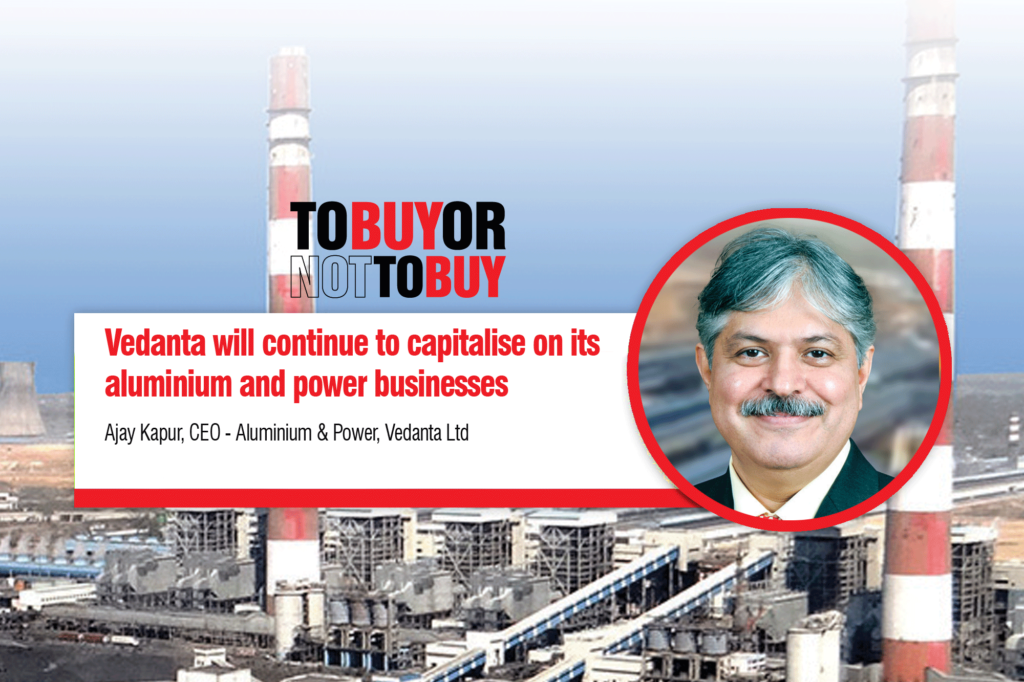Our focus will remain on increasing efficiencies in our aluminium and power businesses and unlock the full potential of our facilities in Lanjigarh, Jharsuguda, BALCO and TSPL.
As the new leader of Vedanta Aluminium, what are going to be your immediate focus areas?
Vedanta is the biggest aluminium producer in India and is one of the foremost aluminium suppliers to the domestic and global markets. From that perspective, our immediate focus is to become a low-cost producer of the metal while maintaining our high production standards. We can achieve this by improving raw material security for the long term, especially bauxite and coal.
Separately, we want to achieve operational flexibility to be able to meet our changing customer requirements. This will enable us to improve our value-added products and solutions that will enhance our relevance in an evolving market scenario.
We will also continue to put safety and sustainability at the core of our operations and our commitment to Vedantas Zero Harm, Zero Waste, Zero Discharge culture will continue to be a priority. But all this will be carried out without compromising with our obligation to people, planet and prosperity that reflects in all our endeavours.
How does Vedanta plan to maintain its long-term business sustainability?
Our focus will remain on increasing efficiencies in our aluminium and power businesses and unlock the full potential of our facilities in Lanjigarh, Jharsuguda, BALCO and TSPL. We will operationalise our entire installed capacity soon and aim to do so at an optimum cost so that we can march on to our next phase of expansion.
Moreover, we will continue to rely on our partnership with all our stakeholders to achieve long-term sustainability. And all this will be carried out with focus on our commitment to the community.
Vedanta Aluminium has achieved highest production figures and in production terms has emerged as a leader. How do you intend to capitalise this position and chart future course?
In FY2018-19, Vedanta Aluminium has clocked 1.95 MT production, 17 per cent growth year-on-year. The biggest reason for this achievement is the way the business has ramped up its capacities at Lanjigarh and Jharsuguda. But more importantly, this landmark achievement will take Vedanta a step closer to becoming a trusted partner of the government. Supporting the government to enable India attain self-sufficiency is one of our key business priorities. A great way to accelerate the industry is to encourage private entrepreneurship. If you look at Vedantas legacy, we have turned around BALCO,brought in efficiencies, operational effectiveness to turn it into one of Indias fabled business success stories. This is the kind of expertise we want to share with the government to build Indias domestic aluminium sector and position it as one of the global leaders with substantial contribution to the countrys economic growth.
What are your plans to make Vedanta cost competitive to retain effectiveness in the current industry scenario?
Vedanta has adopted various measures to serve the growing demand of Indian customers at globally competitive prices. We have adopted modern technical expertise, enhanced production efficiency, optimised the cost of sourcing raw materials like bauxite and coal and reduced the cost of power. We are also exploring ways to increase our capacity of value-added products and expand our portfolio. This will allow us to fetch a better price premium.
From a policy viewpoint, things remain volatile. The country must take measures to address the issue of aluminium imports this is essential for India if it wants to strengthen its domestic industry and achieve self-sufficiency. Currently, 60 per cent of Indian aluminium consumption is met from imported supplies. This undermines the importance of building our domestic industry and also affects our national interests in the longerterm.
Can you elaborate on the evolution of your product portfolio?
Vedanta has invested in development of high quality value-added products. As a result, Vedanta now has a wide range of offerings consisting of wire rods, billets, primary foundry alloys, rolled products and ingots.
Wire rods are mainly used in electrical application. Billets cater to the buildings and construction sector, transport sector and consumer durables sector. Primary Foundry Alloys (PFA) finds major application in automotive industries for making alloy wheels.
These value-added aluminium products effectively take Vedanta astep closer to the end customer in the value chain and will enable the company to fetch a higher premium.
How do you see aluminium’s role in Indias infrastructure sector?
Globally, aluminium is one of the most important materials with a critical play in the building & construction, infrastructure sector. With the proliferation of infrastructure projects, the demand for aluminium will increase. Indias economic growth is also expected to fuel double-digit growth for aluminium over the next 57 years. Vedantas increasing production capacity positions the company well to meet Indias growing aluminium demand. From this standpoint, achieving self-sufficiency will enable India to supply to its infrastructure sector, which will boost the economy and accelerate India’s rise as a global super power.
Ajay Kapur, CEO – Aluminium & Power, Vedanta Ltd
Cookie Consent
We use cookies to personalize your experience. By continuing to visit this website you agree to our Terms & Conditions, Privacy Policy and Cookie Policy.





















